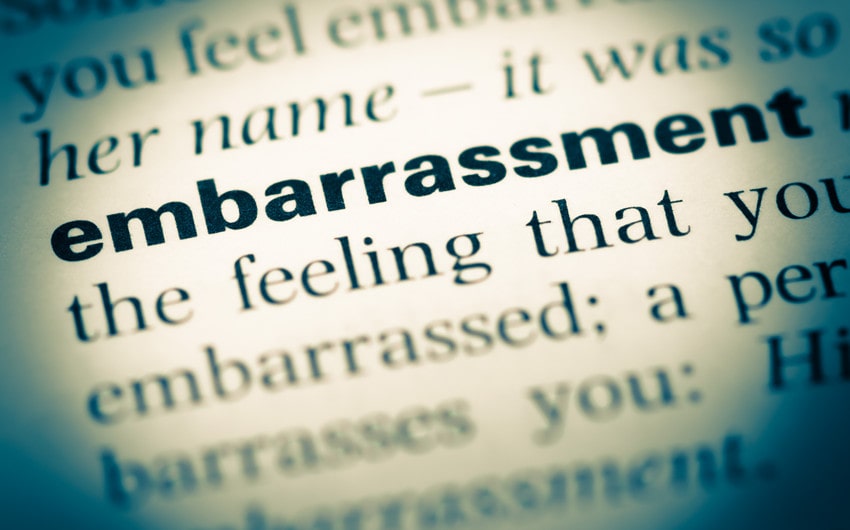20 Bad Words That Start with E (With Definitions and Cautionary Notes)
Language holds power. The way you speak can uplift or undermine, heal or hurt. While exploring positive vocabulary is inspiring, understanding the flip side—negative or “bad” words—is just as important. Whether you’re writing a fictional villain, recognizing toxic behavior, or learning what not to say in professional settings, this guide explores problematic words that start with the letter E.
Note: This list does not include profanities or slurs, but rather negative or harmful words used in common conversation, literature, or character descriptions. Some are insults, others are red-flag traits. All should be used with caution.
1. Egotistical
Someone who is egotistical is self-centered and full of themselves. They often think they are better or more important than others, making it hard to form genuine connections with them. Egotism can damage relationships and trust.
2. Exploitative
This word refers to behavior that takes unfair advantage of someone else. An exploitative person may use others for gain—emotionally, financially, or physically. It’s a serious red flag in workplaces, friendships, or romantic relationships.
3. Erratic
Describing someone as erratic means they’re unpredictable and inconsistent. While not always “bad,” in excess it can signal instability or chaos. An erratic boss, driver, or partner can make others feel unsafe or insecure.
4. Evasive
To be evasive is to dodge questions, avoid the truth, or skirt around responsibility. It can be a frustrating trait, especially in people who never give you a straight answer or who refuse accountability.
5. Envious
Envy, or jealousy, becomes harmful when it leads to resentment, bitterness, or sabotage. An envious person may undermine others or become toxic in competitive environments. Recognizing envy in yourself or others is key to addressing it.
6. Embittered
Embittered people carry deep resentment and negativity, often from unresolved pain or disappointment. Their worldview may be pessimistic or cynical, and their bitterness can rub off on those around them.
7. Entitled
Someone who feels entitled believes they deserve special treatment or rewards—often without earning them. This behavior can come off as arrogant, demanding, or immature. Entitlement disrupts teamwork, fairness, and humility.
8. Explosive
Used to describe a personality prone to angry outbursts or intense reactions. Explosive people may be emotionally volatile, causing harm with their temper and making others feel like they’re “walking on eggshells.”
9. Embarrassing
While not always intentional, embarrassing behavior can be cringeworthy or socially damaging. When someone constantly puts others in awkward situations, it becomes a problem—especially in public or professional settings.
10. Exclusionary
This describes people or behaviors that isolate or leave others out, either intentionally or through prejudice. Exclusionary environments often lead to bullying, loneliness, and systemic injustice.
11. Exaggerative
People who constantly exaggerate may come off as dishonest or unreliable. Stretching the truth—whether in stories, emotions, or accomplishments—can break trust over time.
12. Embarrassed
Feeling embarrassed is a normal emotion, but when it’s chronic or exaggerated, it can lead to avoidance behaviors or deep self-consciousness that hinders confidence and social function.
13. Emasculating
This refers to behavior that undermines someone’s confidence or dignity, often in gendered contexts. It’s a toxic power play that belittles others and should be addressed, not tolerated.
14. Exasperated
While it’s a feeling rather than a character trait, being constantly exasperated may signal poor emotional regulation or a tendency to complain, which can exhaust people around you.
15. Eerie
Used to describe unsettling, creepy situations. While not inherently evil, calling something “eerie” carries negative energy. In stories, it creates suspense; in real life, it often signals discomfort or fear.
16. Excommunicated
A strong word usually tied to being expelled from a group or community, especially religious ones. It represents alienation and social rejection, which carries lasting emotional weight.
17. Excessive
Anything done in excess—whether it’s control, emotion, or ambition—can be destructive. Excessive behaviors often spiral into dysfunction, overindulgence, or imbalance.
18. Evasive (Repeated for Emphasis)
This term deserves mention again, because it’s one of the most damaging behaviors in conflict. Avoiding truth or sidestepping issues can erode relationships more than direct confrontation ever could.
19. Enraged
More than just anger, being enraged means losing control. It’s dangerous, especially when it turns violent. Recognizing rage in yourself or others is crucial for de-escalation and safety.
20. Egregious
A powerful word meaning shockingly bad or outrageous. An egregious act is more than a mistake—it’s something that crosses moral or ethical lines. It’s used in legal, professional, and ethical contexts.
When to Use These Words (and When Not To)
Knowing these “bad” words that start with E isn’t about spreading negativity—it’s about awareness. Here’s how you can use them constructively:
- In writing: To develop well-rounded fictional characters or describe conflict.
- In conversation: To name unhealthy behavior respectfully and clearly.
- In self-awareness: To identify traits you might want to outgrow or heal from.
But avoid using them to label people carelessly. Words like “egotistical” or “entitled” are loaded and can be deeply hurtful when thrown around without care. If you need to confront someone, focus on specific actions rather than defining their character.
Final Thoughts
The English language is rich with nuance, and not every E-word with negative connotation is inherently evil. But it’s important to recognize how language shapes perception, tone, and relationships. Understanding the impact of what you say—and choosing when to use strong words thoughtfully—can be a powerful part of communication and personal growth.
In short: use these words carefully, wisely, and with the intent to clarify—not to wound.






